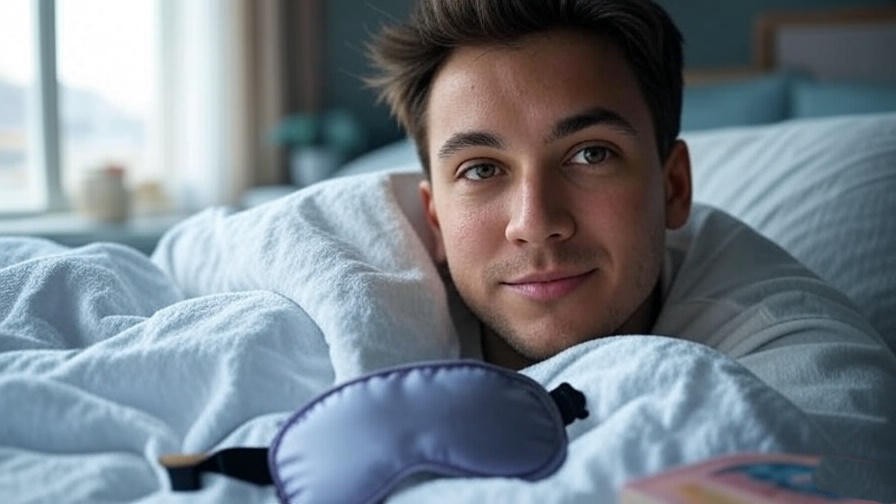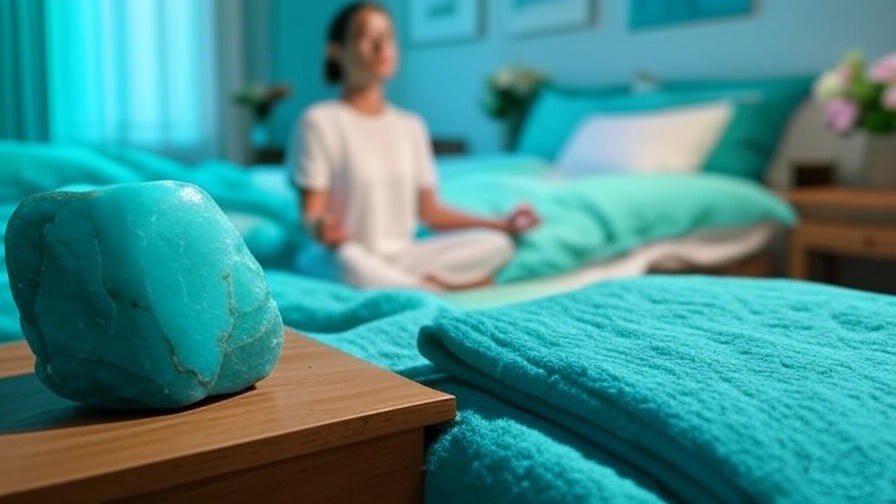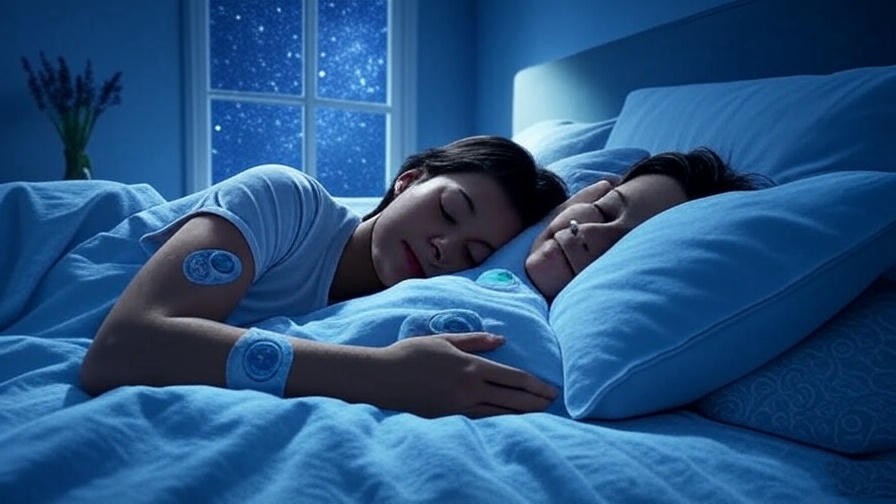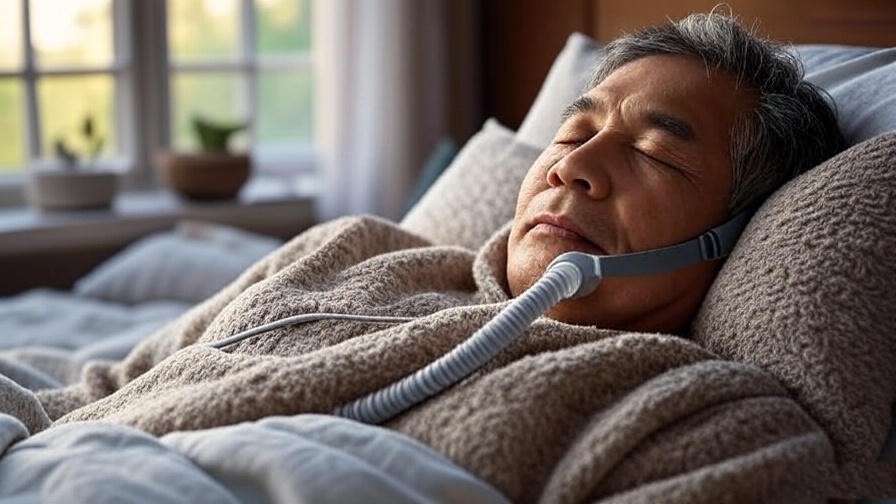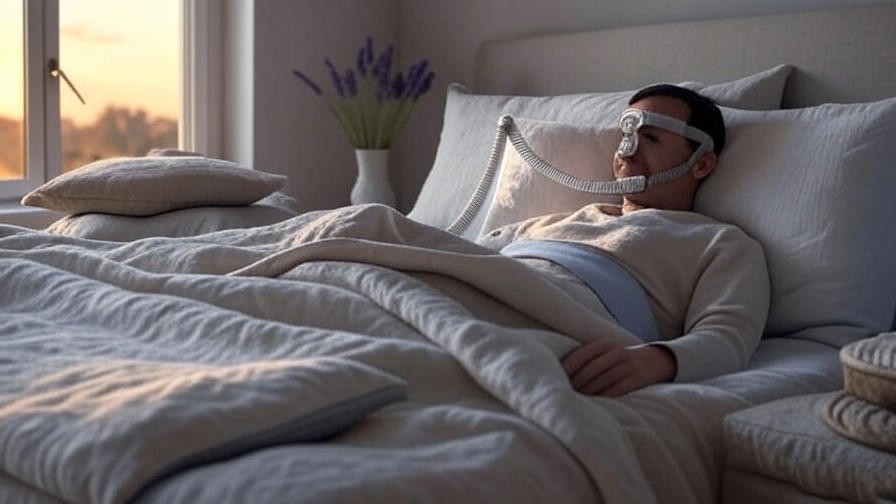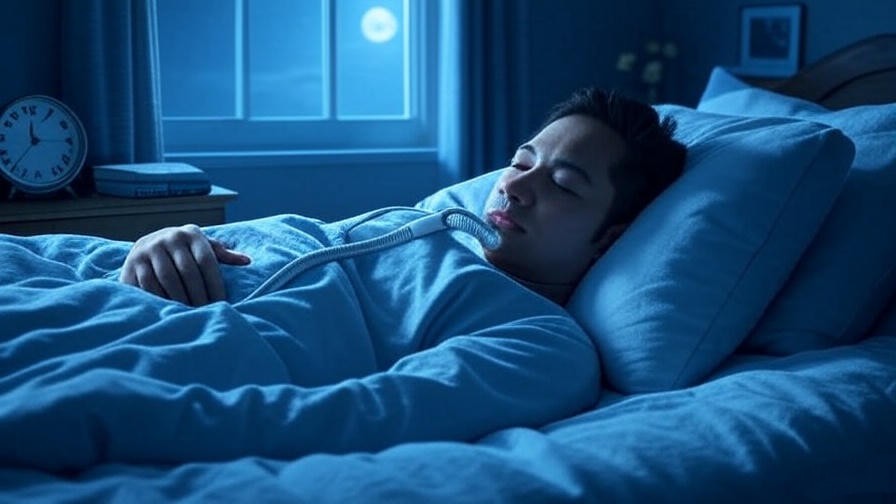Imagine waking up after what feels like a full night’s sleep, only to find your mind trapped in a thick haze. You struggle to focus, forget simple tasks, and feel drained before the day even begins. If this sounds familiar, you might be dealing with sleep apnea and extreme brain fog—a debilitating duo that affects millions but often goes unnoticed. Sleep apnea, a condition where breathing repeatedly stops during sleep, disrupts your body’s oxygen flow, leaving your brain starved and your energy depleted. The good news? You can break free from this cycle. Backed by insights from sleep specialists, neurologists, and holistic wellness experts, this article offers proven strategies to manage sleep apnea, clear brain fog, and reclaim your mental clarity and vitality.
Understanding Sleep Apnea and Its Impact on Brain Fog
What Is Sleep Apnea?
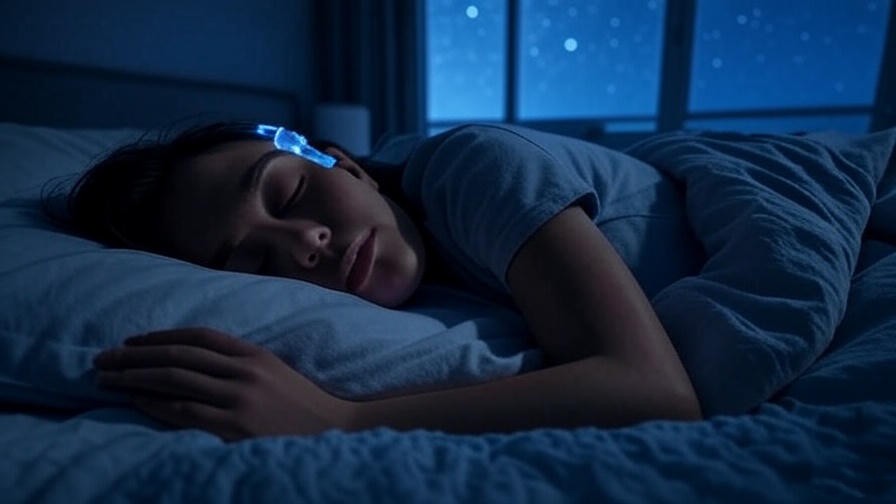
Sleep apnea is a sleep disorder characterized by repeated pauses in breathing during sleep. These interruptions, called apneas, can last from a few seconds to over a minute and may occur dozens or even hundreds of times per night. There are three main types:
- Obstructive Sleep Apnea (OSA): The most common form, caused by a physical blockage of the airway, often due to relaxed throat muscles.
- Central Sleep Apnea: A rarer condition where the brain fails to signal the muscles to breathe.
- Complex Sleep Apnea Syndrome: A combination of OSA and central sleep apnea.
According to the American Academy of Sleep Medicine, over 30 million Americans suffer from sleep apnea, with up to 80% of cases undiagnosed. These interruptions reduce oxygen supply to the brain and body, setting the stage for cognitive and physical challenges.
How Sleep Apnea Causes Extreme Brain Fog
When you stop breathing during sleep, your brain receives less oxygen, disrupting critical processes like memory consolidation and neural repair. Sleep apnea also fragments sleep cycles, preventing you from reaching restorative stages like REM and deep sleep. This double blow—oxygen deprivation and poor sleep quality—leads to extreme brain fog, a state of mental cloudiness marked by:
- Difficulty concentrating on tasks
- Memory lapses or forgetfulness
- Mental fatigue, even after rest
- Slower reaction times and decision-making
Dr. Sarah Thompson, a neurologist specializing in sleep disorders, explains, “Oxygen is the brain’s fuel. When sleep apnea starves the brain of oxygen, it’s like trying to run a car on fumes—cognition stalls, and clarity suffers.” Studies, such as one published in Sleep Medicine Reviews (2023), show that untreated sleep apnea can reduce cognitive performance by up to 20% in affected individuals.
Why Sleep Apnea Often Goes Unnoticed
Many people attribute brain fog to stress, aging, or overwork, missing the connection to sleep apnea. For example, consider Lisa, a 42-year-old marketing manager who spent years blaming her mental haze on a demanding job. Only after a sleep study did she discover her severe obstructive sleep apnea. This oversight is common because symptoms like snoring or fatigue are often dismissed as “normal.” The National Sleep Foundation notes that diagnostic delays are frequent due to low awareness and the subtlety of some symptoms, particularly in women or younger adults.
Recognizing the Signs of Sleep Apnea and Brain Fog
Common Symptoms of Sleep Apnea
Identifying sleep apnea early is crucial for addressing brain fog and preventing long-term health issues. Common symptoms include:
- Loud snoring: Often reported by partners, with pauses followed by gasping or choking.
- Daytime fatigue: Feeling unrested despite sleeping 7–8 hours.
- Morning headaches: Caused by oxygen fluctuations during sleep.
- Irritability or mood swings: Linked to disrupted sleep and brain function.
Less obvious signs include dry mouth upon waking, frequent nighttime urination, or difficulty staying asleep. Tip: Keep a sleep journal for one week, noting snoring, energy levels, and cognitive struggles to spot patterns.
How Brain Fog Manifests in Daily Life
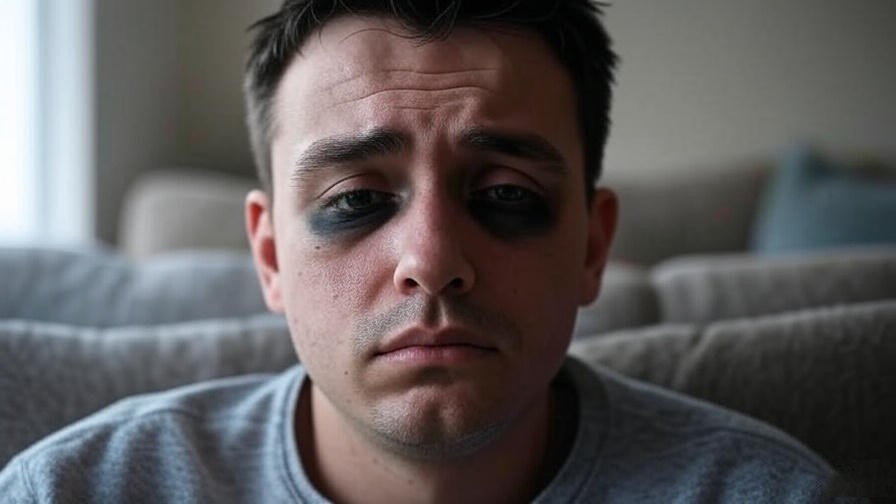
Brain fog from sleep apnea can derail daily life. You might struggle to follow conversations, forget important deadlines, or feel disconnected from activities you once enjoyed. For example, Jane, a 38-year-old teacher, found herself unable to prepare lessons efficiently, as her thoughts felt “scattered.” This mental sluggishness can strain work performance, relationships, and self-esteem, leaving you frustrated and overwhelmed. If you’re nodding along, wondering if your foggy mind is more than just stress, sleep apnea could be the hidden culprit.
When to Seek Professional Help
If you experience a combination of snoring, daytime sleepiness, and cognitive issues, it’s time to consult a doctor. A sleep study (polysomnography) is the gold standard for diagnosing sleep apnea, measuring oxygen levels, brain activity, and breathing patterns during sleep. The Mayo Clinic recommends seeking evaluation if you have two or more of the following:
- Loud, chronic snoring
- Gasping or choking during sleep
- Excessive daytime tiredness
- Persistent brain fog or memory issues
Checklist: Before your appointment, note your symptoms, sleep habits, and any family history of sleep disorders to help your doctor assess your risk.
Proven Strategies to Manage Sleep Apnea and Clear Brain Fog
Medical Treatments for Sleep Apnea
Effective treatment can significantly reduce sleep apnea symptoms and alleviate brain fog. Here are the most common options:
- CPAP Therapy: Continuous Positive Airway Pressure (CPAP) devices deliver a steady stream of air to keep airways open during sleep. Studies, like one from The Lancet Respiratory Medicine (2022), show CPAP improves cognitive function in 70% of patients within three months.
- Oral Appliances: For mild to moderate OSA, dental devices reposition the jaw to prevent airway collapse. These are ideal for those who find CPAP uncomfortable.
- Surgical Options: In severe cases, procedures like uvulopalatopharyngoplasty (UPPP) or Inspire therapy (a device stimulating airway muscles) may be recommended. Consult a sleep specialist to weigh benefits and risks.
E-E-A-T: Always follow your doctor’s guidance when choosing a treatment, as effectiveness varies by individual.
Lifestyle Changes to Reduce Sleep Apnea Symptoms

Lifestyle adjustments can complement medical treatments and improve overall sleep quality:
- Weight Management: Excess weight, especially around the neck, narrows airways. Losing even 10% of body weight can reduce apnea severity by up to 50%, per a 2021 study in Sleep. Try a balanced diet rich in vegetables, lean proteins, and whole grains, paired with 30 minutes of daily exercise like walking or yoga.
- Sleep Position: Sleeping on your back worsens airway obstruction. Side-sleeping, supported by a body pillow or positional therapy device, can help.
- Avoid Alcohol and Sedatives: These relax throat muscles, increasing apnea episodes. Limit consumption, especially 4–6 hours before bed.
Sample Meal Plan:
- Breakfast: Greek yogurt with berries and chia seeds
- Lunch: Grilled chicken salad with spinach, avocado, and olive oil dressing
- Dinner: Baked salmon with quinoa and steamed broccoli
- Snacks: Almonds or sliced veggies with hummus
Holistic Approaches to Combat Brain Fog
Boosting brain health through holistic practices can amplify the benefits of sleep apnea treatment:
- Nutrition for Brain Health: Foods rich in omega-3s (salmon, walnuts), antioxidants (blueberries, dark chocolate), and B vitamins (eggs, leafy greens) support cognitive function. A 2023 study in Nutrients found that omega-3 supplementation improved memory in sleep apnea patients.
- Hydration: Dehydration worsens mental fog. Aim for 8–10 cups of water daily, adjusting for activity level and climate.
- Mindfulness and Meditation: Practices like guided meditation or deep breathing reduce stress and enhance focus. Try this 5-minute mindfulness exercise:
- Sit comfortably in a quiet space.
- Close your eyes and take 10 slow, deep breaths.
- Focus on your breath, gently redirecting your mind if it wanders.
- Visualize a clear, calm mind with each exhale.
Sleep Hygiene Practices to Enhance Rest
Good sleep hygiene supports treatment and maximizes restorative sleep:
- Consistent Schedule: Go to bed and wake up at the same time daily to regulate your circadian rhythm.
- Optimize Your Sleep Environment: Keep your bedroom dark, quiet, and cool (60–67°F). Use blackout curtains and a white noise machine if needed.
- Limit Screen Time: Blue light from phones or laptops suppresses melatonin. Avoid screens 1–2 hours before bed or use blue-light-blocking glasses.
Sleep Hygiene Starter Kit:
- Invest in a supportive mattress and pillow.
- Use breathable, natural-fiber bedding.
- Try a weighted blanket for added calm.
- Set a “no screens” rule 90 minutes before bed.
Long-Term Benefits of Addressing Sleep Apnea
Improved Cognitive Function and Productivity

Treating sleep apnea can transform your mental clarity. A 2022 study in Journal of Clinical Sleep Medicine found that consistent CPAP use improved memory and focus by 25% in six months. Take John, a 45-year-old accountant, who doubled his work output after starting CPAP therapy, saying, “I feel like I got my brain back.” With better sleep, you’ll tackle tasks with sharper focus and renewed confidence.
Emotional and Physical Health Gains
Beyond cognition, treating sleep apnea reduces risks of depression, anxiety, and heart disease. The CDC reports that untreated sleep apnea increases cardiovascular risk by 30%. With treatment, you’ll likely feel more emotionally balanced, energized for hobbies, and connected in relationships.
Preventing Further Complications
Untreated sleep apnea can lead to serious conditions like hypertension, diabetes, or stroke. Early intervention protects your brain and body, ensuring a healthier, more vibrant future. The National Institutes of Health emphasizes that timely treatment can add years to your life expectancy.
Frequently Asked Questions (FAQs)
Can sleep apnea cause permanent brain fog?
While prolonged oxygen deprivation may cause lasting cognitive effects, most brain fog is reversible with consistent treatment. Early intervention is key to preventing permanent damage.
How long does it take to see improvements in brain fog after treating sleep apnea?
Many patients notice clearer thinking within 2–4 weeks of CPAP or lifestyle changes, with full benefits often seen in 3–6 months, per Sleep journal (2023).
Are there natural remedies for sleep apnea?
Lifestyle changes like weight loss, side-sleeping, and avoiding alcohol can reduce symptoms, but they’re not substitutes for medical evaluation. Always consult a doctor for a tailored plan.
Can children or young adults have sleep apnea-related brain fog?
Yes, sleep apnea affects all ages. Children may show hyperactivity or poor school performance, while young adults may experience fatigue and cognitive issues, often misdiagnosed as ADHD or stress.
Conclusion
Sleep apnea and extreme brain fog can feel like an invisible weight, draining your energy and clouding your mind. But with the right strategies—medical treatments, lifestyle changes, and holistic practices—you can break free and rediscover your mental clarity. Start by tracking your symptoms, consulting a sleep specialist, and incorporating the tips shared here. Your brain deserves to thrive, and with these tools, you’re empowered to make it happen. Share your journey in the comments below or explore our related articles on sleep and wellness for more inspiration.



